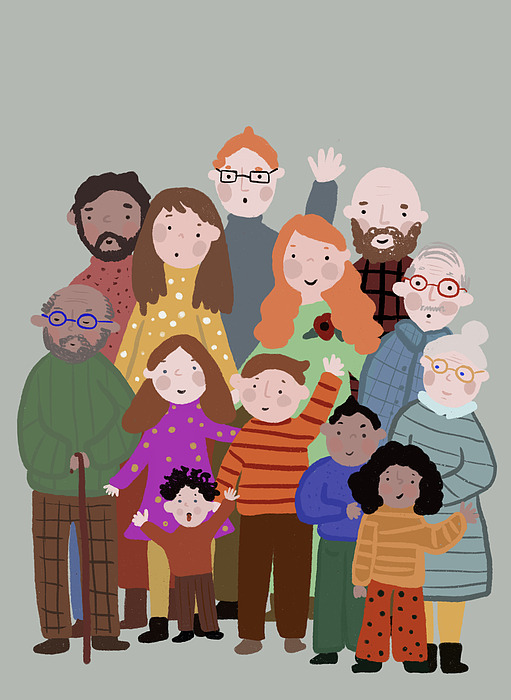Text
POSSESSIVE
A form used to show possession and similar ideas.
POSSESSIVE PRONOUN
My, your, his, her etc are possessive pronouns (they stand for the speaker's, the hearer's, that person etc.).
Mine, yours, his, hers, etc. are also possessive pronouns, for the same reason. My, your etc are used before nouns, so they are not only pronouns, but also determiners.
Example:
➡️ this family is yours and mine.
➡️ this is our family.

[gettyimages]
#english language#english terminology#learn egnlish#english usage#education#english expression#english student#study motivation#studyspo#english#learning#studying#english langblr#english studyblr#langblr#studyblr
12 notes
·
View notes
Text
PLURAL
grammatical form used to refer to more than one person or thing.
We; buses, children; are; Many; these.
Example:
➡️ the kids are playing on the beach.

#english language#english terminology#english usage#education#english expression#english student#study motivation#studyspo
8 notes
·
View notes
Text
PHRASE
Two or more words that function together as a group.
Examples:
➡️ the silly old woman.
➡️ dead tired.

[gettyimages]
#learn egnlish#learn english usage#english language#english terminology#english usage#education#english learning#english studying#learning#studying#english grmmar#english expression
5 notes
·
View notes
Text
PERSONAL PRONOUNS
The words I, me, you, she, her, he, him, we, us, they, them are usually called personal pronouns.
Example:
➡️ I'm tired.
I replace the name of any speaker
➡️ Jhon's ill, he'll be away for a few days.
(NOT... Jhon'll be away)
➡️ tell Mary I miss her.
(NOT tell Mary I miss Mary)

[gettyimages]
5 notes
·
View notes
Text
PERFECT CONDITIONAL
Should/would have + past participle.
Example:
➡️ I should/would have agreed.

[gettyimages]
#english language#english terminology#english usage#education#english expression#english student#study motivation#studyspo#learn english usage#learning#studying#english langblr#english studyblr#langblr#studyblr#student
7 notes
·
View notes
Text
PERFECT INFINITIVE
Can have the same kind of meaning as perfect tense or past tense. Perfect tense is made with (To) have + past participle.
Example:
➡️ It's nice to have finished work. (=It's nice that I have finished.)

[gettyinages]
#english language#english terminology#english usage#education#english expression#english speaking#learn english usage#english langblr#english studyblr#langblr#studyblr#learning#studying#student
14 notes
·
View notes
Text
PAST PERFECT (PROGRESSIVE)
a verb form made with had + past participle. had been + ...ing is past perfect progressive .
Examples:
➡️ I had forgotten.
➡️ it had been raining.

[gettyimages]
#english language#english terminology#english usage#education#english expression#english student#study motivation#studyspo#english langblr#english studyblr#english#langblr#studyblr#learning#studying#learn
7 notes
·
View notes
Text
PAST PROGRESSIVE
a verb form made with was/were + ...ing.
Example:
➡️ I was going.

(gettyimages)
#english language#english terminology#english usage#education#english expression#english student#study motivation#studyspo#learn english usage#english speaking#english langblr#english studyblr#langblr#studyblr#learning#studying#learn#english
2 notes
·
View notes
Text
PAST PARTICIPLE
A verb form like "broken, gone, stopped" which can be used to form perfect tenses or passive, or as an adjective.
PERFECT
A verb form made with "auxiliary have + past participle"
Example:
➡️ I have forgotten.

[gettyimages]
#learn english usage#english language#english terminology#english usage#education#english expression#english student#study motivation#studyspo#english grammar#learning english#studying english#english langblr#english studyblr#langblr#studyblr#english speaking
6 notes
·
View notes
Text
PASSIVE
A passive verb form is made with be + participle.
Example:
➡️ is broken
➡️ was sent
➡️ will be helped
The subject of a passive verb form is usually the person or thing that is affected by the action of the verb.
Example:
➡️ Lucas was sent to prison for five years.

[gettyimages]
3 notes
·
View notes
Text
PARTICIPLE CLAUSE
A clause-like structure which contains a participle (e.g. present participle or past participle) Not a verb tense.
Example:
➡️ having a couple of hours to spare, I went to see my film.

[gettyimages]
#english language#english terminology#english usage#education#english expression#english student#study motivation#studyspo#english#learning#studying#english langblr#english studyblr#langblr#studyblr#engliah grammar#english speaking
4 notes
·
View notes
Text
NUMBER
The way in which differences between singular and plural are shown grammatically. The differences between house and houses, mouse and mice, this and these are the differences of number.
Example:
➡️ this house has a lot of mice.

[gettyimages]
#english language#english terminology#english usage#education#english expression#english student#study motivation#studyspo#english#learn english usage#english langblr#english studyblr#langblr#studyblr#learning#studying#study#english grammar#english speaking
4 notes
·
View notes
Text
NOUN PHRASE
A group of words (e.g. article + adjective + noun) Which act as the subject, object or complement in a clause.
Example:
➡️ a beautiful girl.

[gettyimages]
#english language#english terminology#english usage#education#english expression#english student#study motivation#studyspo#learn english usage#learning english#studying english#english langblr#english studyblr#langblr#studyblr#learning#studying#english grammar#english speaking#english#learn english
7 notes
·
View notes
Text
NOUN
A word like oil, memory, arm, which can be used in an article. Nouns are most often the names of people or things. People names (e.g. Mary) and place names (e.g. Switzerland) are called proper nouns.
Example:
➡️ Mary lives in Switzerland.

[gettyimages]
#english language#english terminology#english usage#education#english expression#english student#study motivation#studyspo#learn english usage#english grammar#english#english langblr#english studyblr#langblr#studyblr#learning#studying
1 note
·
View note
Text
NON-IDENTIFYING RELATIVE CLAUSE
A relative clause which does not identify the noun it refers to (because we already now, which person or things is meant)
Example
➡️ there's Hanna Smith, who tried to steal my cat.
The relative clause, who tried to steal my cat, does not identify the person - she is already identified by the name Hanna Smith.

[gettyimages]
3 notes
·
View notes
Text
NON-AFFIRMATIVE
The words some, somebody, somewhere, etc. are used most often in affirmative sentences. In other kinds of sentence they are often replaced by any, anybody, anywhere, etc. are non-affirmative or also called non-assertive form.
Example
➡️ Did anybody telephone?

[gettyimages]
#english language#english terminology#english usage#education#english expression#english student#study motivation#studyspo#learn english usage#english grammar#english speaking#learning#studying#english langblr#english studyblr#langblr#studyblr#students
3 notes
·
View notes
Text
NOMINAL RELATIVE CLAUSE
A relative clause (usually introduced by what) Which acts as the subject, object or complement of a sentence.
Example
➡️ I gave him what he needed.

[gettyimages]
#learn english#learn english usage#english#english grammar#english terminology#education#english expression#english student#study motivation#studyspo#english langblr#english studyblr#langblr#studyblr
0 notes